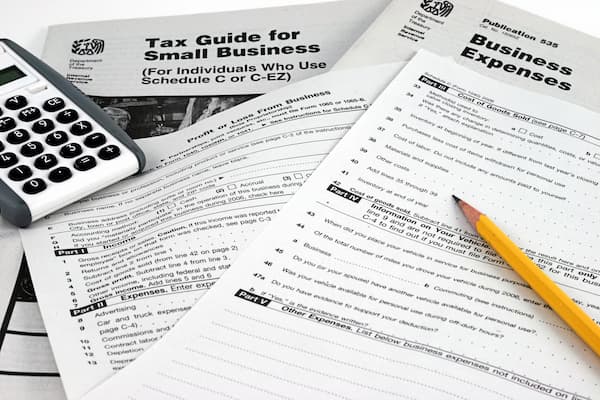Tax planning is an important process for every business. Unfortunately, too many small businesses never plan or wait until it is too late. It’s important to understand what can be done early in the year to help make your tax preparation easier while helping to reduce your tax burden.
Get organized and automate:
Consider looking into accounting software, such as QuickBooks, to help you organize and track your income and expenses. There are a number of vendors who integrate with QuickBooks that will perform invoicing functions and managing your receivables. This will help you stay organized and it will help your CPA understand your tax situation to plan better.
What is your business type?
How your business is structured can significantly change the amount of taxes you pay. The beginning of the year is a good time to review your business structure with your CPA and attorney.* There may be advantages to changing to an S Corp, C Corp or LLC. Your CPA and attorney can guide you through the process and ensure you are optimally structured based on your specific situation.
Work with your financial institution:
If you think you may have a financing need within the year, start the discussion with your relationship manager now. Alert them to what you are considering and what the timing might be, this way you are prepared and not waiting for a loan request to be processed.
Additionally, can your institution help you automate any of your billing, invoicing, or collections processes to make you more efficient? Early in the year is a great time to look at options.
First Commonwealth offers online cash management, which is a complete solution to help your business manage its finances quickly and easily.
Meet with your CPA:
Plan now to meet in October or early November with your CPA or a tax advisor to plan the last 60 days of the year. Understanding where you are financially at that point in time will allow you to do a number of things before the year ends, like:
- Make last-minute charitable contributions to charities in need
- Take advantage of depreciation guidelines by purchasing needed equipment, etc. (Keep in mind; it is still not a good idea to buy something the business doesn’t need in order to gain a tax break).
- Max out your retirement plans
- Defer income by invoicing later in the year or accelerate payments depending on your situation.
All the most successful businesses have a team of experts to help them. First Commonwealth Business Services is here to help you with your lending and cash management needs.
*First Commonwealth FCU and its representatives do not offer tax advice. For such advice, please contact a tax professional.




